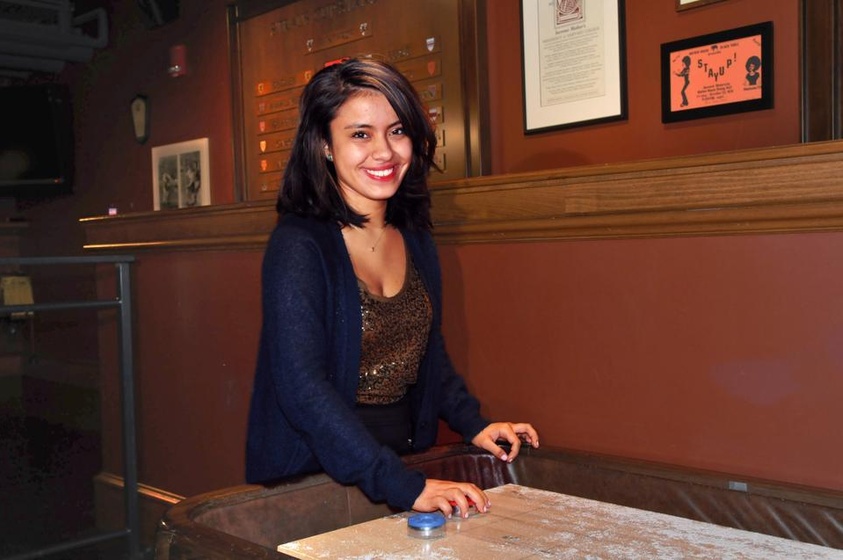“Karla’s ability to juggle so many classes and writerly pursuits is mysterious. Maybe she’s a spy,” says George H. Blaustein, concentration advisor to Karla M. Cornejo Villavicencio ’11, a senior in Pfoho who has found success in the literary world outside Harvard. Though her spy status remains uncertain, her skill with words is not. Cornejo has been a research assistant for Sasha Frere-Jones of The New Yorker, an adjunct scholar at Lapham’s Quarterly, and a contributing writer for Interview Magazine and The Atlantic online. She says the highlight of her literary internship at Harper’s Magazine two summers ago was investigating the whereabouts of Pablo Escobar’s missing hippo.
Cornejo’s adventures with writing began when she was 15 and discovered she could get into shows for free if she wrote about them. The editor of a jazz monthly called “All About Jazz” recruited her to write album reviews after finding her in a music writing class. “I told him I didn’t know anything about jazz and I didn’t particularly like it,” she says. “He told me I could write, and once you can write, you can write about anything.”
Born in Ecuador, Cornejo has also merged her passion for writing and her love of Latin American literature by translating works from Spanish to English. Recently, Harper’s published her translation of an interview with Argentine writer Jorge Luis Borges.
In between music writing and translations, Cornejo finds time to be “an ideal History and Literature student,” according to Blaustein, who is a Hist and Lit lecturer. “Karla’s scholarship is both pious and profane, and she has impeccable taste,” he says.
For now, Cornejo does not consider music writing her career goal. “I think good writing is the opposite of silence, and that’s what I want to keep doing,” she says. “I write because I’m emotionally, temperamentally, intellectually incapable of doing anything else—maybe my life would be different if I knew how to factor binomials.”


